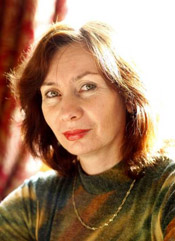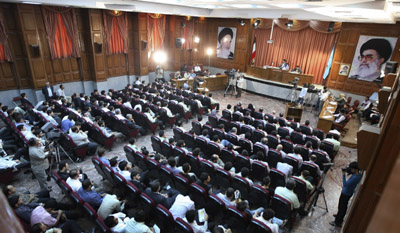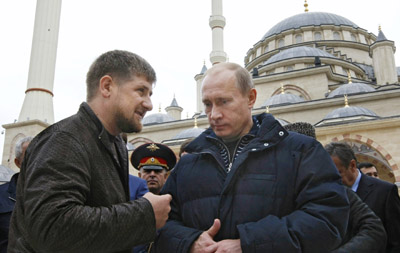Europe & Central Asia
2010

CPJ seeks information on Estemirova murder in Russia
New York, February 26, 2010—The Committee to Protect Journalists calls on authorities investigating the July 2009 murder of prominent Russian journalist and human rights defender Natalya Estemirova to publicize their progress on the case seven months after the crime. The New York Times reported on Thursday that a top investigator with the Investigative Committee of…

Chilling Google verdict in Italy
Italy was already the Internet freedom bad boy among western European democracies with its plans to extend broadcast TV licensing requirements to video sites. But the conviction today by a Milan judge of three Google executives is more than a one-off case of antisocial cyber behavior. It could end the protection that Web platforms now enjoy for…

CPJ launches yearly findings globally, and is heard
On February 16, CPJ held an ambitious international launch of our annual report Attacks on the Press. We coordinated events in six cities on four continents in order to expand the reach of our international headlines while also focusing on specific issues in each region. So how did we do?

Attacks on the Press 2009: Preface
By Fareed Zakaria Toward the end of his 118-day ordeal inside Tehran’s Evin prison, Newsweek reporter Maziar Bahari had a bizarre exchange with his interrogator. Bahari had been held in solitary confinement since his arrest after Iran’s disputed presidential election in June; he had been subjected to near-daily beatings and interrogation sessions that stretched for…
Attacks on the Press 2009: Introduction
By Joel Simon Does “name and shame” still work in the Internet age? After all, the massacre of 31 journalists and media workers in the Philippines pushed the 2009 media death toll to the highest level ever recorded by CPJ. The number of journalists in prison also rose, fueled by the fierce crackdown in Iran.

Why a killing in Chechnya is an international issue
By Nina Ognianova The day before, Natalya Estemirova had seen off two colleagues from Moscow. Yelena Milashina, a reporter with the newspaper Novaya Gazeta, and Tanya Lokshina, an advocate with the international group Human Rights Watch, had traveled to Chechnya on separate assignments. Like many visiting journalists and human rights defenders, Milashina and Lokshina had…
Attacks on the Press 2009: Armenia
Top Developments• Broadcast media controlled by government or its allies.• Numerous assaults reported, but police do little. Key Statistic 12: Broadcast license applications filed by independent outlet A1+. None approved. The nation remained polarized by the fraud-marred 2008 presidential election won by Serzh Sargsyan, with large public protests and violent government reprisals continuing well into 2009. The…
Attacks on the Press 2009: Azerbaijan
Top Developments• Critical reporters jailed for defamation, “hooliganism.”• CPJ honors imprisoned editor Eynulla Fatullayev. Key Statistic 68: Novruzali Mamedov’s age when he died in prison after being denied medical care. Using imprisonment as a crude form of censorship, the authoritarian government of President Ilham Aliyev remained one of the region’s worst jailers of journalists. Authorities allowed one…
Attacks on the Press 2009: Belarus
Top Developments• Restrictive law requires media obtain government registration.• Administration eases some repressive tactics to gain EU favor. Key Statistic 13: Independent papers blacklisted by state-controlled distributors. Authorities eased their heavy-handed tactics of repression for much of the year even as a restrictive new media law took effect. The change in tone coincided with the European Union’s…